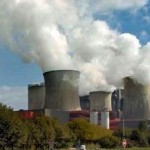 London – The European Union’s Emissions Trading System (EU ETS) has been widely criticised for failing to provide sufficient incentive to stop the region’s generators burning coal rather than gas or other cleaner fuels. However, from next Wednesday, the EU ETS is set to change radically, according to research company Bloomberg New Energy Finance (BNEF).
London – The European Union’s Emissions Trading System (EU ETS) has been widely criticised for failing to provide sufficient incentive to stop the region’s generators burning coal rather than gas or other cleaner fuels. However, from next Wednesday, the EU ETS is set to change radically, according to research company Bloomberg New Energy Finance (BNEF).
On March 12, the EU will start to “backload”, or delay, many of its auctions of carbon permits, restricting by more than 50% the number of carbon allowances coming onto the market and presenting both utilities and industrial companies with a radically different emissions trading environment compared to the one that has prevailed in recent years.
Konrad Hanschmidt, head of carbon market analysis at Bloomberg New Energy Finance, said, “After a difficult period for the EU ETS, in which there was abundant supply of allowances and the price for a tonne of CO2 emitted fell as low as EUR 2.41 at one point last year, we will now see a much tighter market with new pressures on both utilities and industrial companies.”
As a result of the backloading plan approved by EU member states this month, and due to come into effect from next week:
- Governments will cut the supply of new carbon permits by 53% in an effort to bring it closer to balance with demand, and to ensure higher prices. These plummeted from a high of EUR 29/tCO2e in 2008 to an average of EUR 4.46 in 2013 as a result of the economic downturn that followed the financial crisis. The auctions that are delayed from 2014 to 2016 will be rescheduled for later in the decade.
- The price of carbon permits has gained 40% to EUR 7 per tonne since the beginning of this year in anticipation of the backloading measure.
- Reduced auction supply means that utilities burning fossil fuels will have to buy carbon permits from the surplus that has been built up since the 2008 financial crisis. This surplus amounts to around one year’s worth of emissions, and Bloomberg New Energy Finance estimates that industrial companies, mainly in the steel and cement sectors, hold around a quarter of this surplus.
- Governments will sell only 343m carbon permits from mid-March to December this year. Hanschmidt and his colleagues estimate that power companies will seek to buy 730m carbon allowances over the same period, suggesting that they will have to incentivise holders of the historical surplus to part with 387m carbon allowances, or rely on their own reserves. This gives industrial companies unprecedented market power.
- “Backloading” will only have a temporary impact according to the new legislation, as the backloaded carbon allowances will have to be sold in 2019-20. The EU is, therefore, likely to turn its attention to implementing further reforms that would have a more permanent impact on the carbon market.
Itamar Orlandi, lead EU ETS analyst at Bloomberg New Energy Finance commented, “Carbon prices in Europe will increasingly depend on industrial firms’ willingness to sell surplus permits that they received for free in the past. The prospect of further, more ambitious reform to the EU ETS means that many of them will demand substantial premiums over the current price level. Power companies will prefer to pay such premiums as long as it remains cheaper to produce power with coal than to switch to lower-emitting gas-fired generation.”
Hanschmidt added, “By agreeing to backloading, the EU has given a huge vote of confidence to carbon markets. Policy-makers should now use this momentum to pass further reforms in order to provide investors with greater confidence that carbon emissions will carry a meaningful cost in the region over the medium and long term.”
Source: BNEF.
About Bloomberg New Energy Finance
Bloomberg New Energy Finance (BNEF) is the definitive source of insight, data and news on the transformation of the energy sector. BNEF has staff of 200, based in London, New York, Beijing, Hong Kong, New Delhi, Singapore, Sydney, Tokyo, Cape Town, São Paulo, Washington D.C., San Francisco, Munich and Zurich.
BNEF Insight Services provide financial, economic and policy analysis in the following industries and markets: advanced transportation, bioenergy, carbon capture and storage, carbon markets, digital energy, energy efficiency, energy storage, gas, geothermal, hydro & marine, nuclear, power markets, REC markets, solar, water and wind. BNEF Industry Intelligence Service provides access to the world’s most comprehensive database of assets, investments, companies and equipment in the same sectors. The BNEF News Service is the leading global news service focusing on finance, policy and economics for the same sectors. The group also undertakes custom research on behalf of clients and runs senior-level networking events, including the annual BNEF Summit, the premier event on the future of the energy industry.
New Energy Finance Limited was acquired by Bloomberg L.P. in December 2009, and its services and products are now owned and distributed by Bloomberg Finance L.P., except that Bloomberg L.P. and its subsidiaries distribute these products in Argentina, Bermuda, China, India, Japan, and Korea. For more information, visit http://about.bnef.com.













